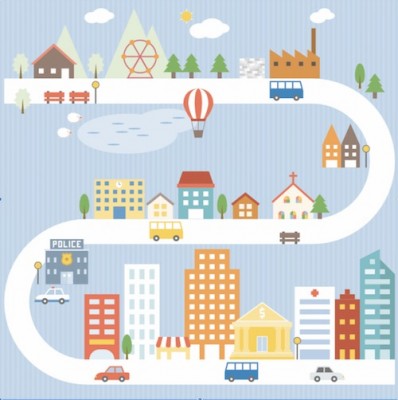How Dementia-Friendly Communities Are Shaping a More Inclusive Future

At AGE-u-cate Training Institute, we believe dementia care extends far beyond healthcare facilities and into the heart of our neighborhoods. While dementia is often perceived as a personal or familial challenge, the reality is that it touches every layer of our society. Creating dementia-friendly communities is not simply a noble ideal — it’s a growing necessity that directly impacts the quality of life for millions.
The dementia-friendly movement isn’t new, but today, it holds more urgency than ever before. According to the World Alzheimer Report 2024, over 55 million people worldwide are currently living with dementia, with this number expected to double by 2050. Even more startling is that public misunderstanding around dementia is increasing, not decreasing. The report found that nearly 80% of the general public believes dementia is a normal part of aging — a misconception that fuels stigma and isolation.
As our aging population grows, communities must rise to meet these challenges. That means not only supporting those living with dementia but also transforming public spaces, businesses, and services to foster inclusion and dignity.
What Does It Mean to Be Dementia-Friendly?
A dementia-friendly community is one where individuals living with dementia can continue to participate in daily life with understanding and support from those around them. It’s where a trip to the bank or grocery store isn’t fraught with fear of embarrassment, and where caregivers find compassion rather than frustration.
This effort requires education at every level — from business owners and retail staff to public officials, transportation providers, and even faith communities. Imagine walking into a store where staff are trained to recognize confusion and respond with patience, or visiting a library that offers dementia-friendly programming. These are not far-off dreams; they are happening now in pockets across the country. But there’s more work to be done.
The Human Cost of Inaction
Without this community-wide support, isolation and stigma deepen. According to Alzheimer’s Disease International, 88% of individuals living with dementia report experiencing discrimination. The consequences are more than social — they affect mental and physical health outcomes. Many individuals withdraw from social situations or employment opportunities, not because they are incapable, but because they fear misunderstanding and judgment.
This isolation reverberates through families as well. Care partners — both professional and familial — shoulder enormous emotional and logistical burdens. When a community lacks understanding, that burden becomes heavier.
Leading by Example: Real-World Successes
Fortunately, some communities are stepping up to meet the moment. Local initiatives like memory cafés — informal gatherings where individuals with dementia and their families can socialize in a safe, stigma-free environment — are gaining traction. Cities like New York and Minneapolis have launched dementia-friendly business training initiatives that educate store employees and frontline workers on recognizing signs of dementia and offering supportive service.
One particularly innovative example is the Dementia-Friendly Airports Working Group, which has created resources to help airports become more accessible for travelers with cognitive impairment — an area AGE-u-cate is proud to support through our partnerships and resources for program partners.
These grassroots efforts are changing not just individual experiences but the entire social fabric of their communities.
The Role of Experiential Learning in Building Understanding
Education is foundational to these efforts — but not just any education. Knowledge alone isn’t enough. Experiential learning, which builds empathy through firsthand simulation, has a profound impact.
That’s where programs like AGE-u-cate’s Dementia Live® come in. Through immersive experiences, participants can feel — if only for a few minutes — what it’s like to navigate daily life with sensory and cognitive changes. This form of education resonates far more deeply than facts or figures ever could. It moves participants from intellectual understanding to emotional connection, which is the key to behavior change.
Our Compassionate Touch® program also complements this by equipping caregivers with practical tools to connect with individuals living with dementia through skilled, empathetic touch and presence. Both programs play a vital role in fostering dementia-friendly communities that prioritize human connection.
Moving Forward: Everyone Has a Role to Play
The truth is, creating a dementia-friendly community isn’t the responsibility of a single entity. It requires collaboration between healthcare providers, policymakers, businesses, and everyday citizens.
AGE-u-cate remains committed to helping communities across the country cultivate this change. We partner with senior care organizations, hospitals, adult day centers, and even local businesses to deliver training that sparks understanding and shifts perspectives. But this movement also thrives on individuals — community leaders, educators, and even neighbors — who are willing to be part of the solution.
If your organization is looking for ways to get involved, start small. Offer dementia education to your staff. Host a community event. Or invite your team to participate in experiential learning through Dementia Live® or Compassionate Touch®.
The road to a more inclusive, dementia-friendly future is paved with education, empathy, and collaboration — and together, we can make a lasting impact.


